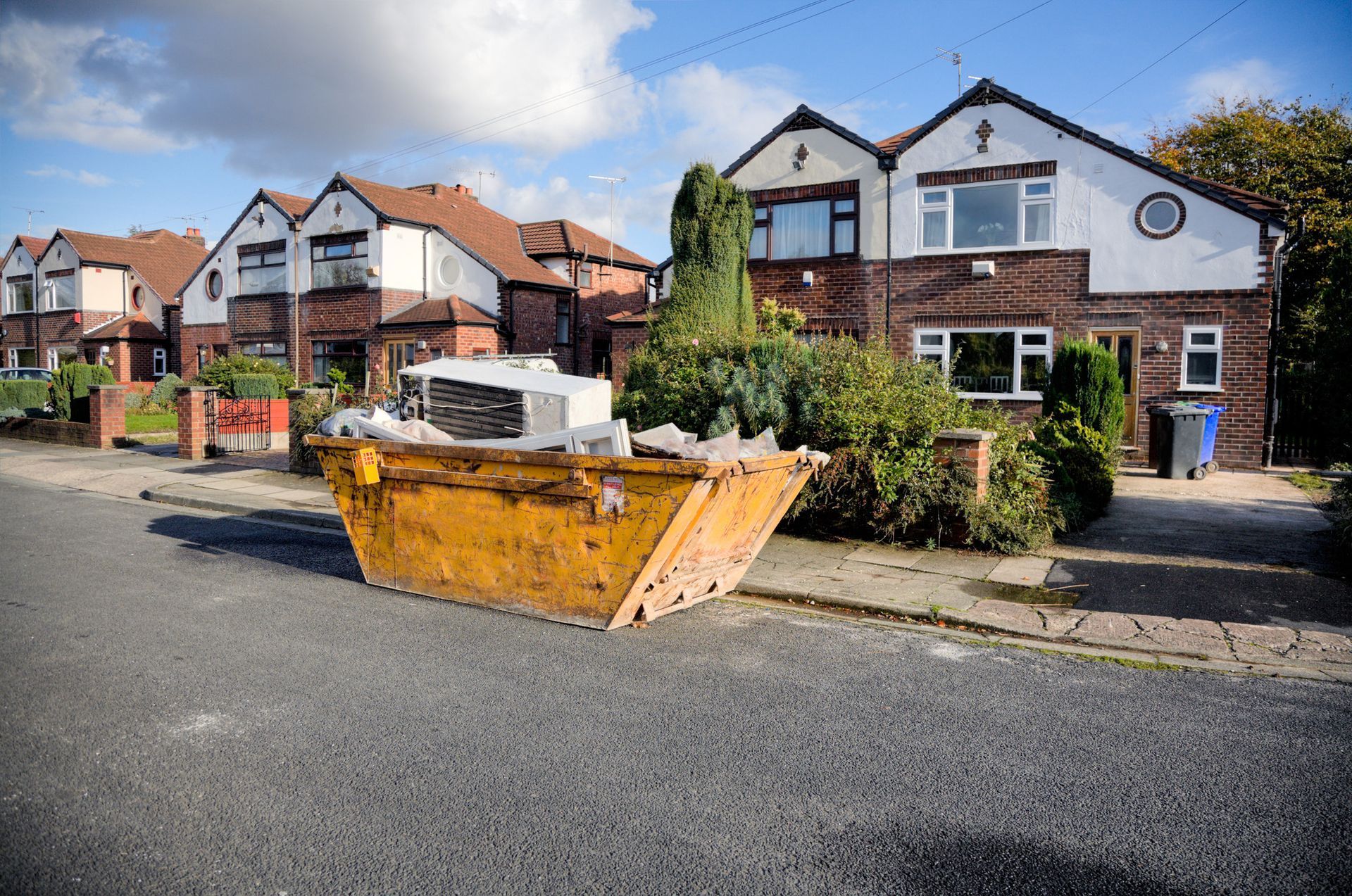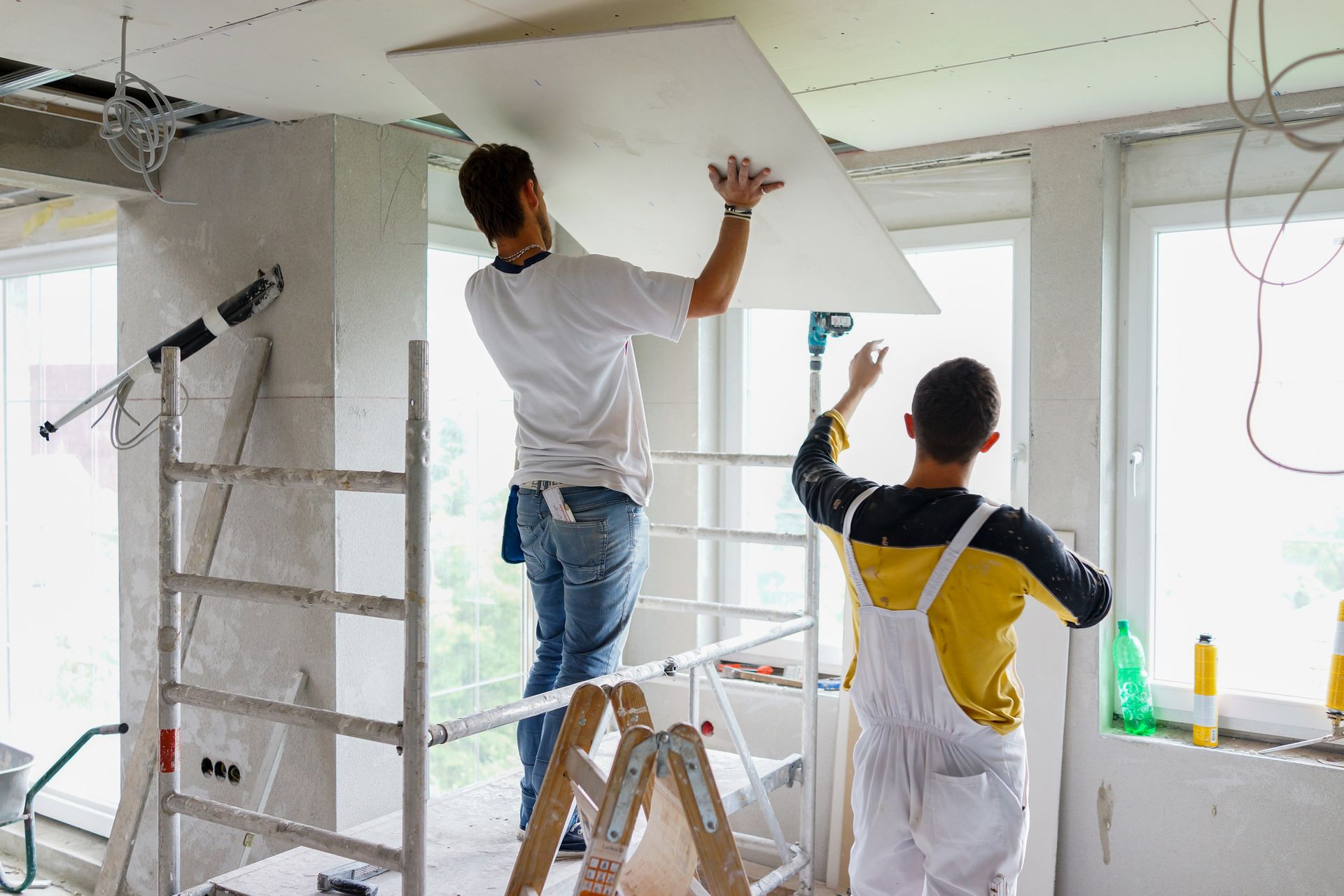Our network helps businesses to be found and connected across Yell.com, Apple, Microsoft Bing and Alexa
The No.1 provider of managed digital marketing services for all types of local businesses in the UK
Latest press releases from Yell's Media Centre

As the new year begins, many Brits embrace a fresh start – not just for themselves but for their homes too. From clearing out cluttered cupboards to tackling long-overdue home improvements, the urge to refresh and reset is stronger than ever. Across the UK, certain cities are leading the charge in this annual home clear-out trend, with a surge in demand for skip hire and removal services. According to cleaning experts at Flash, Brits will spend over two years of their lives cleaning their homes on weekly chores. So, which cities are at the forefront of the UK’s annual home refresh? Yell has broken down the data to reveal the cities leading the new year clear-out trend – alongside expertise from waste removal experts – so that you too can join the trend. Waste removal searches begin to rise in February Search trends show an increase in demand for waste removal services from February onwards, as households across the UK begin clearing out accumulated clutter and making room for the year ahead. Searches for “skip hire” see over 348,000 searches each month and are up 43% in the past month alone. Rubbish removal: 42,000 searches each month, up 10% in the past 30 days House clearance: 44,000 searches each month, up 35% in the past 30 days Birmingham leads the UK annual home clear-out trend It’s revealed that Birmingham is leading the way when it comes to clearing out their homes this new year. With an impressive 1,600 total searches for skip hire , house clearance, and rubbish removal , this translates to 140 searches per 100,000 people. With a large population and a thriving mix of homeowners and renters, it’s clear that Brummies are embracing the New Year clear out, clearing out unwanted clutter to start the year fresh. Below is a list of the top 15 UK towns and cities with the highest number of searches per 100,000 people for the search terms 'skip hire’, ‘rubbish removal’ and ‘house clearance’.

With property prices rising and moving costs increasing, the experts at Yell have found that more homeowners in the UK are opting for home improvements rather than relocating. This trend, driven by factors such as rising property prices and the growing costs of buying a new home, has seen more people investing in remodelling and extending to create their dream homes where they already live. Research from TSB reveals that two in five (41%) homeowners would prefer to build an extension than move house. According to Pepper Money’s Specialist Lending Study , 41% of those surveyed said affordability of properties is preventing them from moving to a larger home elsewhere and that 51% are considering a secured loan to make home improvements. With Google searches for “planning permission” up YoY in the UK, and “home improvement ideas” up 9900% this month, for many, redeveloping a home offers a more practical solution to moving home. Rather than facing the expenses of moving and the challenges of relocating, homeowners can transform their spaces to better meet their needs and preferences. From adding extra rooms or modernising kitchens to creating open floor plans or upgrading the home’s energy efficiency, these improvements not only add value to a property but also improve daily life. However, what many homeowners may not realise is that there is a planning permission postcode lottery going on across the country. In 2024, it’s harder than ever to get approval on your property, with approval rates at an all-time low. While you may expect that adding an extension to your home or converting a loft space may be a relatively straightforward option – your location could have an impact on the decision made. With this in mind, experts at Yell have reviewed planning applications across England from July 2023 to July 2024 to compile a list of the best and worst locations for planning approval, highlighting which areas make it easiest – and hardest – to secure planning permission for your home. 86% of all planning applications in England have been granted in 12 months With more homeowners opting for redevelopment, planning applications across England have remained high, with 327,217 applications submitted from Q3 2023 to Q3 2024. Despite the high volume, England has maintained an 86% approval rate for these applications, making it an attractive option for those looking to upgrade their homes. However, it’s clear there are regional inconsistencies and some areas are seeing more favourable outcomes when it comes to planning permission. The South East is revealed as the region with the most applications, receiving 66,795 in the 12 months – demonstrating a high demand for home updates and development in the area. Gosport in the South East leads in approval rates, with 99% of applications granted, while Barking and Dagenham trail behind with the lowest approval rate at 61%, signalling potential challenges in that locality. Approval rates also vary across regions, with the North East boasting the highest at 91%, compared to London’s more selective 80% approval rate. Householder development approvals are down year-on-year Of the 327,217 applications this past year, 167,604 were for householder developments. These are residential planning applications that are within a residential property and are not a change of use. Examples of householder developments include extensions, garages, swimming pools, walls, fences, vehicle accesses, porches, satellite dishes, loft conversions, and dormer windows. If you're considering a home renovation or addition, understanding the trends in planning applications can offer valuable insights – and it’s clear that planning approval rates are shifting across England. In the past year, 148,406 planning applications were approved, accounting for 89% of decisions made. While this is still high, it reflects a slight dip from the 91% peak seen in 2021. The North East is the region with the highest percentage of planning approvals The South East remains a hotspot for home improvement projects, with 32,922 householder applications granted – leading the country in volume. This is followed by London (21,490) and East of England (20,207). However, in the North East, while having a lower number of applications, it’s the region with the highest percentage of approvals at 94%, making it an ideal region if you're looking for a smooth approval process. Regions with the highest number of granted planning

As across the UK temperatures officially hit single digits, homes will be turning to their trusty thermostats to give them some much-needed warmth this autumn. However, with your boiler sitting docile all summer, you may find yourself without heat when you need it. With an average of 5,100 searches each month, in autumn, searches for “boiler repair” begin to creep up. They peak in December as households find broken boilers when they need it the most. Searches have climbed 257% this month alone. With this in mind, Yell has partnered with David Doran, a plumbing expert at Blackstone Plumbing & Heating Ltd to find out what heating checks you need to make and how to avoid a winter breakdown. What checks should you carry out before turning your heating on? ● Check your boiler pressure Your boiler pressure gives you an idea of how efficiently your heating system is running by telling you the pressure of the water circulating through your system. If the pressure is too high, then this could cause leaks to develop. If it’s too low, the system won’t work as well, leading to ineffective heating, and you’ll find your home will be colder than expected. David explains, “Low pressure can result in ineffective heating, while high pressure can potentially damage your system.” He recommends keeping the pressure gauge between 1 and 2 bars, which provides the ideal balance for optimal performance. If you notice a slight increase in boiler pressure while it’s running, don’t worry—this is completely normal. Just ensure the pressure stays below the 3-bar mark during use. ● Check your thermostat Make sure your thermostat is working properly and accurately reading the temperature. If the readings are inaccurate, the thermostat might cause your boiler to work overtime, wasting energy trying to reach a room temperature that’s already been achieved. Conversely, it could shut the boiler off too early, known as short cycling, leaving you in the cold. David suggests, “ Consider replacing old thermostats with programmable or smart thermostats to improve efficiency. If your thermostat runs on batteries, check if they need replacing. ” ● Test out your heating system before you need it It’s important to test your boiler before you need it, to avoid being one of the thousands of Brits searching for “boiler repair” in December. Run your heating system for a short period (e.g., 15-30 minutes) to ensure all radiators heat up evenly and there are no unusual noises from the boiler or pipes (e.g., banging, clanging, or gurgling sounds). Should you notice anything untoward, such as cold spots, it’s worth reaching out to your local heating specialist . On Yell, you can either browse nearby listings or post an enquiry . ● Ensure your boiler is regularly serviced Annual servicing of your boiler is important to ensure that your system is operating safely. According to insights from HomeServe , more than half (58%) of UK households haven't checked that their boiler is working as it should and 56% of the population haven't had an annual boiler service. David says that it’s important to “ have your boiler serviced once a year. Faulty boilers can lead to dangerous situations like gas leaks or carbon monoxide poisoning, which can be deadly. ” A service includes checks for leaks, blockages, and the correct operation of safety devices. David adds, “R egular servicing keeps your boiler running efficiently. Over time, boilers can accumulate dirt, dust, and limescale, reducing efficiency. A well-maintained boiler burns fuel more effectively, helping you save on energy bills. ” Alongside this, it’s important to remember that many boiler manufacturers require annual servicing as part of their warranty terms. Skipping a service could void your warranty, leaving you without coverage if something goes wrong. Additionally, some home insurance policies may also stipulate that your boiler must be serviced regularly. A local plumber should be able to service your boiler and give you the advice and support you need. Tips on how to get the most out of your heating during cold weather According to Pepper Money’s Specialist Lending Study , 73% of people say that even a £100 increase in monthly bills would seriously affect their household finances. With winter on the way, maximising the efficiency of your heating during cold weather can keep your home warm and comfortable while also saving on energy bills. David Doran and Yell provide tips on how to make the most of your heating in the cold weather: ● Only set your heating to when you need it: A programmable thermostat allows you to create a heating schedule that fits your routine, reducing wasted energy when you’re not home or during sleeping hours. Smart thermostats can learn your habits and adjust heating automatically, optimising efficiency. ● Aim for a comfortable temperature: Aim for a comfortable temperature between 18-21°C (64-70°F). Setting your thermostat at 18-20°C can significantly reduce energy consumption compared to higher temperatures. For every degree you lower your thermostat, you can save around 1-3% on your heating bill. ● Only heat the rooms you need: Thermostatic radiator valves (TRVs) only heat the rooms you’re using. Keep unused rooms at a lower temperature or turn the radiators off entirely in those spaces. ● Don’t block the heat with furniture: Avoid placing large furniture or curtains in front of radiators. This blocks heat circulation and makes your heating work harder to warm the room. Clear airflow helps the heat distribute more effectively throughout your home.










